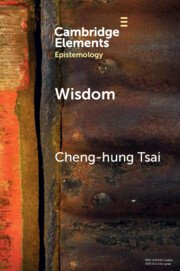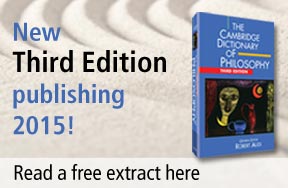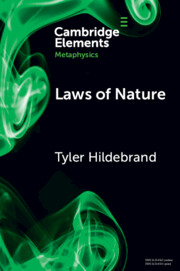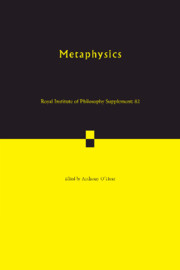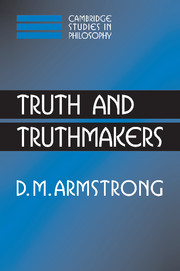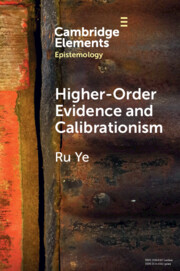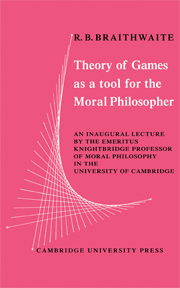Wisdom
A Skill Theory
£17.00
Part of Elements in Epistemology
- Author: Cheng-hung Tsai, Institute of European and American Studies, Academia Sinica
- Date Published: January 2023
- availability: Available
- format: Paperback
- isbn: 9781009222891
£
17.00
Paperback
Other available formats:
eBook
Looking for an inspection copy?
This title is not currently available on inspection
-
What is wisdom? What does a wise person know? Can a wise person know how to act and live well without knowing the whys and wherefores of his own action? How is wisdom acquired? This Element addresses questions regarding the nature and acquisition of wisdom by developing and defending a skill theory of wisdom. Specifically, this theory argues that if a person S is wise, then (i) S knows that overall attitude success contributes to or constitutes well-being; (ii) S knows what the best means to achieve well-being are; (iii) S is reliably successful at acting and living well (in light of what S knows); and (iv) S knows why she is successful at acting and living well. The first three sections of this Element develop this theory, and the final two sections defend this theory against two objections to the effect that there are asymmetries between wisdom and skill.
Customer reviews
Not yet reviewed
Be the first to review
Review was not posted due to profanity
×Product details
- Date Published: January 2023
- format: Paperback
- isbn: 9781009222891
- length: 75 pages
- dimensions: 229 x 151 x 5 mm
- weight: 0.13kg
- availability: Available
Table of Contents
Introduction
Part I. A Skill Theory of Wisdom Presented:
1. Wisdom as knowing how to live well
Part II. The Theory Developed:
2. Wisdom and knowing the whys
3. Wisdom and knowing what matters
Part III. The Theory Defended:
4. The deliberation objection: deliberation about final ends
5. The feedback objection: feedback for skill acquisition
Conclusion
Appendix
References.
Sorry, this resource is locked
Please register or sign in to request access. If you are having problems accessing these resources please email [email protected]
Register Sign in» Proceed
You are now leaving the Cambridge University Press website. Your eBook purchase and download will be completed by our partner www.ebooks.com. Please see the permission section of the www.ebooks.com catalogue page for details of the print & copy limits on our eBooks.
Continue ×Are you sure you want to delete your account?
This cannot be undone.
Thank you for your feedback which will help us improve our service.
If you requested a response, we will make sure to get back to you shortly.
×
